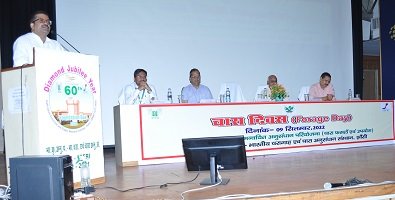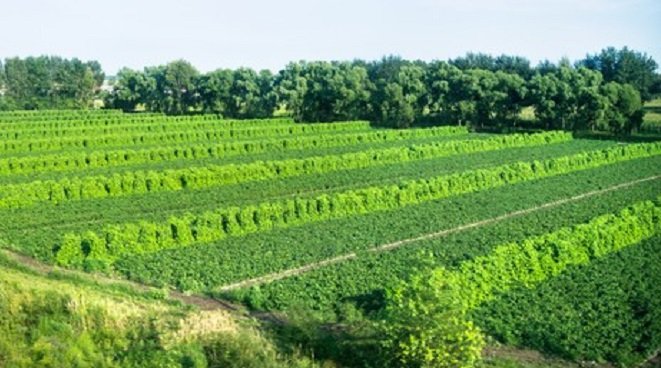CCEA approves bouquet of schemes to boost wellbeing of farmers
CCEA approves continuation of Urea Subsidy Scheme; Rs. 3,68,676.7 Crore committed for urea subsidy for 3 years
The Cabinet Committee on Economic Affairs (CCEA) approved a unique package of innovative schemes for farmers with a total outlay of Rs.3,70,128.7 crore. The bouquet of schemes is focused on the overall well-being and economic betterment of farmers by promoting sustainable agriculture. The initiatives will boost farmers’ income, strengthen natural/organic farming, rejuvenate soil productivity, and ensure food security.
The CCEA approved the continuation of the Urea Subsidy Scheme to ensure constant availability of urea to the farmers at the same price of Rs 242/ 45 kg bag excluding taxes and neam coating charges. Out of the above-approved package, Rs. 3,68,676.7 Crore have been committed for urea subsidy for three years (2022-23 to 2024-25). This is apart from the recently approved Nutrient Based Subsidy of Rs 38,000 Crore for the Kharif season for 2023-24. The farmers need not spend extra for the purchase of urea, and this will help moderate their input costs. At present, the MRP of urea is Rs.242 per 45 kg bag of urea (exclusive of charges towards neem coating and taxes as applicable), whereas the actual cost of the bag comes to around Rs. 2200. The Scheme is wholly financed by the Government of India through budgetary support. The continuation of the Urea Subsidy scheme will also maximise indigenous production of Urea to reach self-sufficiency levels.
Due to ever-changing geopolitical situations and increased raw material prices, Fertiliser prices have been increasing multifold globally over the years. But the Government of India has protected its farmers from steep fertiliser price rises by increasing the fertiliser subsidy. In its endeavour to safeguard our farmers, the Government of India has increased the Fertiliser subsidy from Rs. 73,067 Cr in 2014-15 to Rs. 2,54,799 Cr in 2022-23.
By 2025-26, eight Nano urea plants with a production capacity of 44 Crore bottles equaling 195 LMT of conventional urea will be commissioned. Nano fertiliser releases nutrients in a controlled manner contributing to higher nutrient use efficiency while costing less to the farmers. The application of Nano Urea has demonstrated an increase in crop yield.
Setting up and revival of 6 urea production units at Chambal Ferti Ltd. – Kota Rajasthan, Matix Ltd. Panagarh West Bengal, Ramagundam-Telangana, Gorakhpur-UP, Sindri-Jharkhand and Barauni-Bihar since 2018 is helping to make the country atmanirbhar in terms of urea production and availability. Indigenous production of urea has increased from the level of 225 LMT during 2014-15, to 250 LMT during 2021-22. In 2022-23, production capacity has increased to 284 LMT. These along with Nano Urea Plants will reduce our current import dependency on urea and finally make us self-sufficient by 2025- 26.
CCEA approves continuation of Urea Subsidy Scheme;



